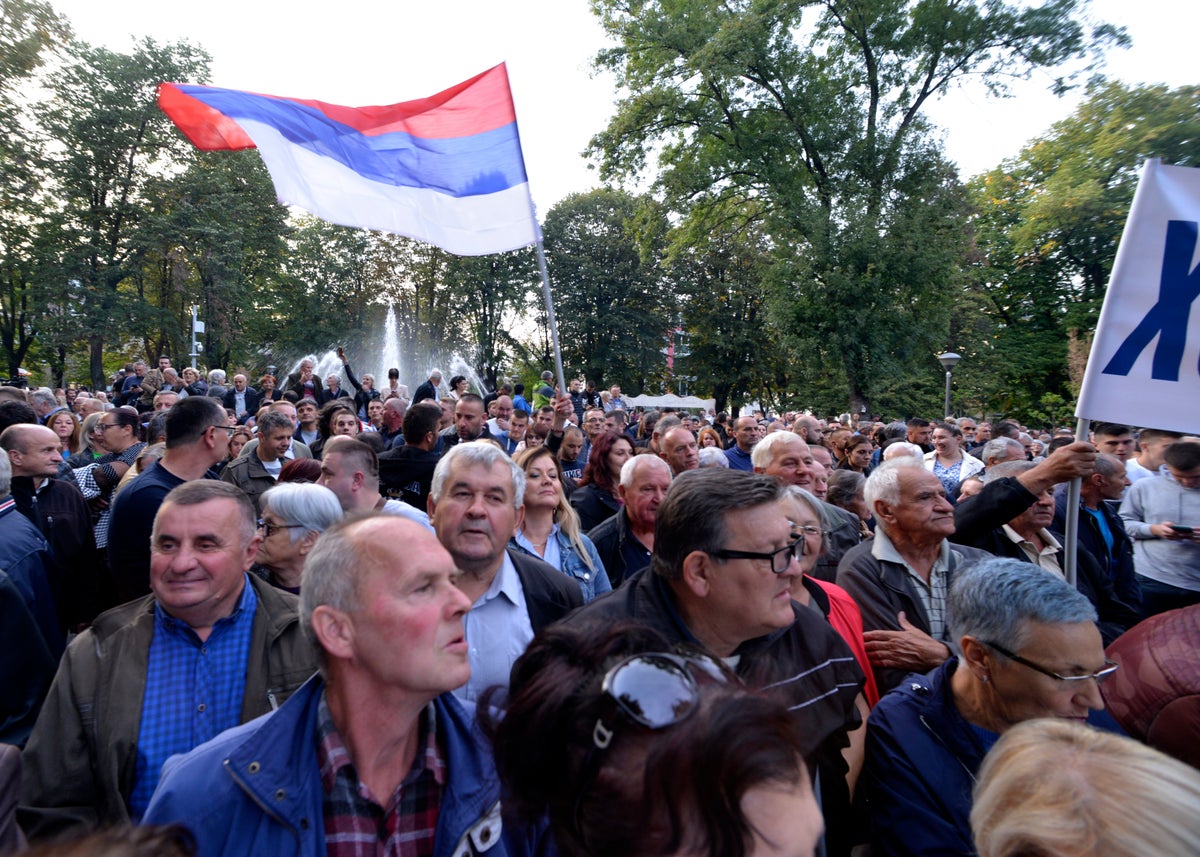
Several thousand people in Bosnia joined an opposition protest Thursday against a result in the country's general election last weekend, alleging a pro-Russia Bosnian Serb leader rigged the vote to win the position he sought.
Chanting slogans against Bosnian Serb leader Milorad Dodik, the protesters blocked traffic in central Banja Luka, the main city in the Serb-run part of Bosnia. They want a repeat of Sunday's vote for the president of the Serb entity, Republika Srpska.
Bosnia's central election authorities have said that Dodik won the most votes in that election. The opposition alleged he orchestrated fraud to prevent his main challenger, Jelena Trivic, from winning.
“We want to open the (ballot) bags and establish the truth, so that people are told why they stole (votes) and so that those responsible for the theft be held responsible,” opposition leader Branislav Borenovic said. “Jelena Trivic is the new president of Republika Srpska.”
Dodik has been the most powerful politician in the Bosnian Serb half of Bosnia for years. He has close relations with Russian President Vladimir Putin, and the United States and Britain have sanctioned him earlier this year for allegedly trying to undermine peace and stability in the country.
Dodik - who last held the position of the Serb member of Bosnia's multi-ethnic presidency - has denied the election fraud allegations. The nationalist politician has repeatedly called for the separation of Republika Srpska from the rest of Bosnia.
Russia has backed Dodik, fueling fears in the West that Moscow might try to create further instability in volatile Bosnia to avert some attention from the war in Ukraine.
Separatist ambitions among ethnic Serbs sparked the devastating 1992-95 war in Bosnia ,which killed more than 100,000 people, displaced millions and shattered the country for years to come.
A U.S.-brokered peace agreement that ended the war created a Serb-run and a Bosniak-Croat-dominated entities, tied loosely by joint institutions. Sunday's election filled positions at all levels of government.
The Balkan nation of some 3.3 million people remains plagued by corruption and ethnic tensions that have impeded efforts to join the European Union.







